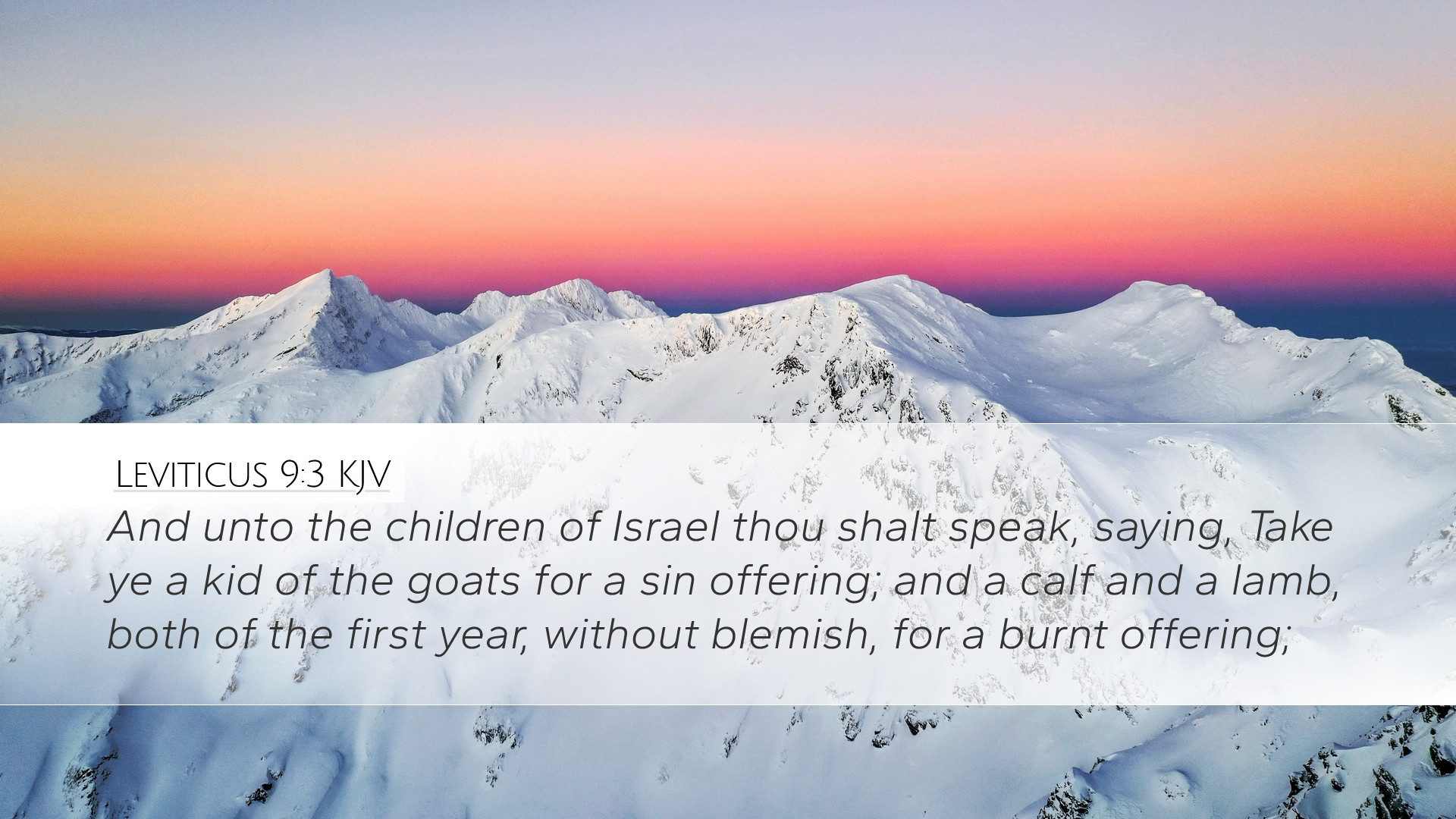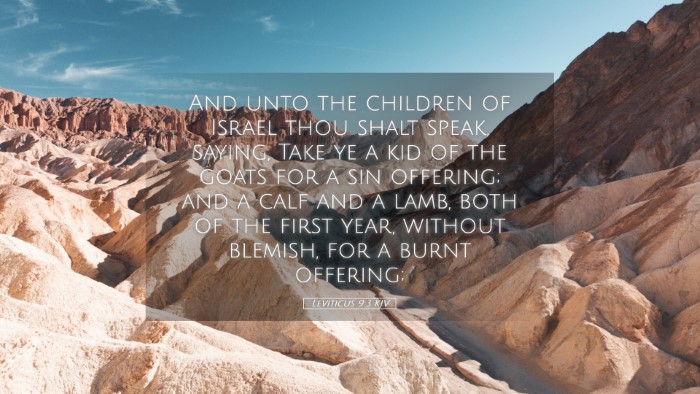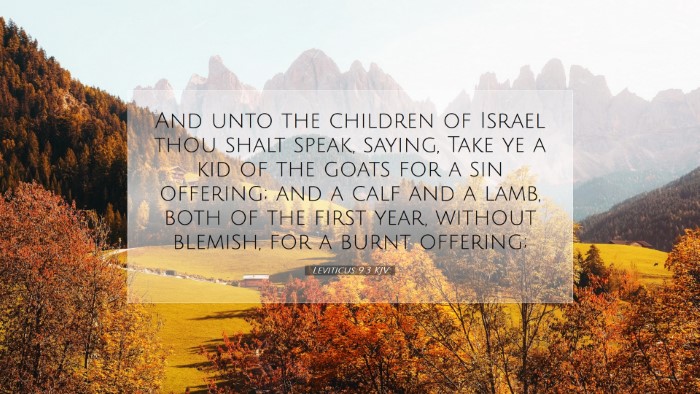Commentary on Leviticus 9:3
Bible Verse: Leviticus 9:3 - "And unto the children of Israel thou shalt speak, saying, Take ye a kid of the goats for a sin offering, and a calf and a lamb, both of the first year, without blemish, for a burnt offering."
Introduction
This verse details specific instructions given to Moses regarding offerings to the Lord as part of the inaugural ceremonies for the newly consecrated priesthood. The offerings are essential for atonement and communion with God, highlighting the significance of sacrifice in the covenant relationship between God and Israel.
Contextual Background
The Book of Leviticus is fundamentally concerned with the holiness of the people of Israel and their worship of God. It provides detailed instructions on sacrifices, purity laws, and the role of priests. Leviticus 9 marks a pivotal moment in which Aaron, as the newly appointed high priest, begins to carry out the rituals prescribed for the community of faith.
Commentary Insights
1. The Call to Sacrifice
Matthew Henry elaborates that the instruction to take a kid, a calf, and a lamb signifies the necessity of sacrificial offerings in approaching God. Sacrifices are fundamental not merely as rituals but as acts of faith. They illustrate the principle of substitution, where the innocent dies for the guilty.
2. The Types of Offerings
Albert Barnes notes that the distinctions between the offerings emphasize different aspects of atonement and worship. The kid serves for a sin offering, acknowledging human transgression and the need for forgiveness through sacrifice, while the calf and lamb as burnt offerings denote total dedication and consecration to God. The offerings being without blemish indicate the requirement for purity and perfection in sacrifices, which ultimately point to the perfect sacrifice of Christ.
3. The Significance of Firstborn Animals
Adam Clarke discusses the importance of using firstborn animals in offerings. The firstborn represents the best and the most valuable, signifying that worshippers are to offer to God their highest and best, symbolizing Lordship and devotion. This principle underscores the call for believers to surrender their lives wholly to God, reflecting Romans 12:1's appeal for living sacrifices.
4. The Role of the Priests
In this passage, the actions of the priests are vital; they act as mediators between God and the people. Henry mentions that the success of Aaron's priestly office depends on his obedience to divine instructions. This theme resonates within the New Testament framework, where Jesus is portrayed as the ultimate high priest, embodying complete obedience to God.
Theological Implications
This verse reflects profound theological truths relevant for scholars and ministers alike:
- Substitutionary Atonement: The concept of an innocent animal bearing the guilt of the people prefigures Christ's sacrificial death.
- The Holiness of God: The meticulous instructions denote God's absolute holiness and the requirement for approaches to Him to be marked by reverence and meticulous obedience.
- Community Worship: The call to bring communal offerings illustrates the importance of collective worship and responsibility among the children of Israel.
Practical Applications
In applying Leviticus 9:3 to contemporary faith practice, pastors and theologians can derive various lessons:
- Preparation for Worship: The necessity of preparing one’s heart and mind before approaching God in worship emphasizes personal holiness.
- Offering Our Best: Believers are encouraged to give God their best not just in material offerings but in their time, talents, and devotion.
- Understanding Atonement: Deepening the understanding of atonement and the joyful reception of forgiveness through Christ strengthens the core of Christian faith.
Conclusion
Leviticus 9:3 provides rich historical and theological insights that serve as a foundation for understanding worship, sacrifice, and holiness. The instructions to offer specific animals highlight the gravity of sin, the necessity of atonement, and the profound depths of divine love manifested in sacrificial systems that ultimately point to the sacrifice of Jesus Christ. Pastors and scholars should reflect on these themes, drawing connections between ancient practices and modern-day applications, thereby enriching their teaching and pastoral care.


